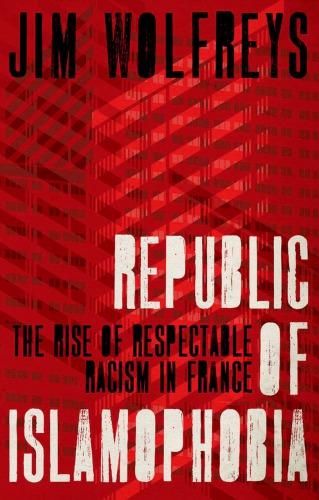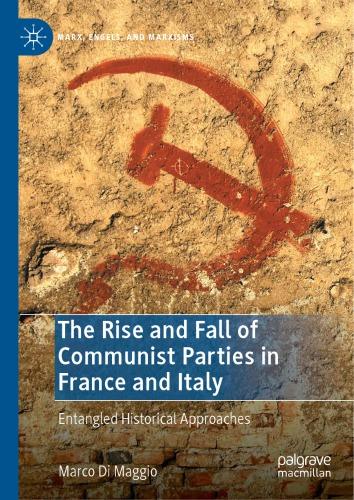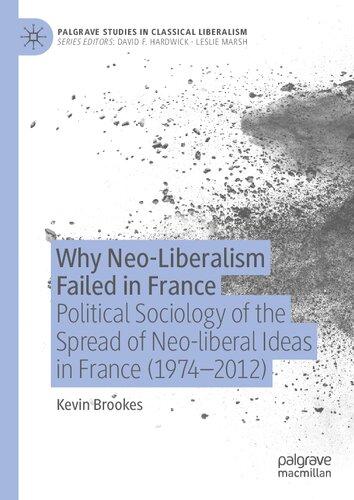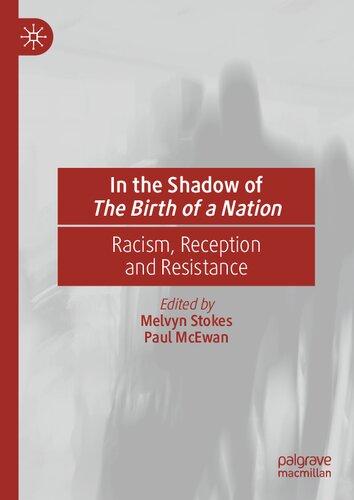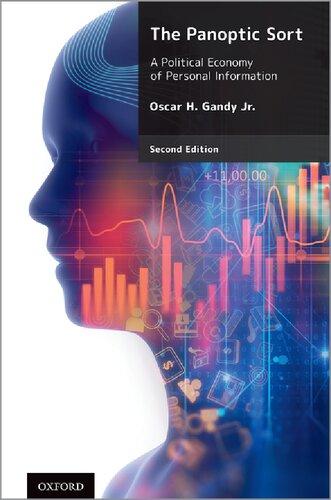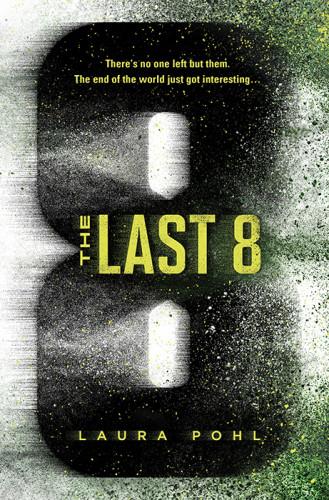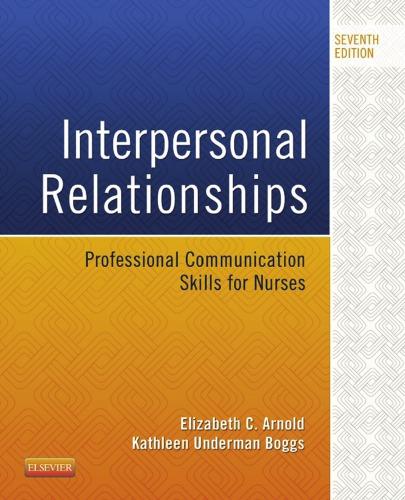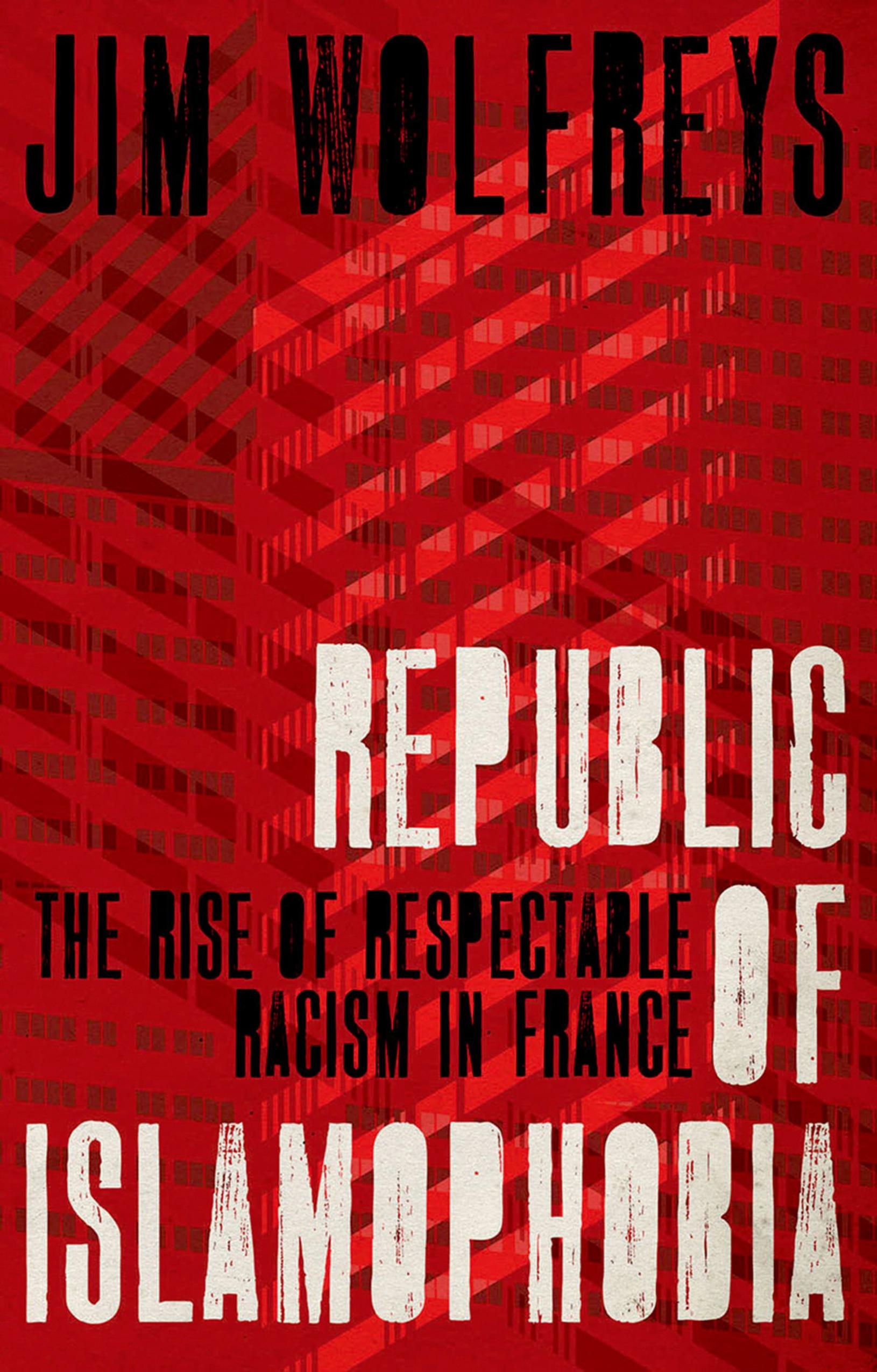A
Oxford University Press is a department of the University of Oxford. It furthers the University’s objective of excellence in research, scholarship, and education by publishing worldwide.
Oxford New York
Auckland Cape Town Dar es Salaam Hong Kong Karachi
Kuala Lumpur Madrid Melbourne Mexico City Nairobi New Delhi Shanghai Taipei Toronto
With offices in
Argentina Austria Brazil Chile Czech Republic France Greece
Guatemala Hungary Italy Japan Poland Portugal Singapore South Korea Switzerland Thailand Turkey Ukraine Vietnam
Oxford is a registered trade mark of Oxford University Press in the UK and certain other countries.
Published in the United States of America by Oxford University Press 198 Madison Avenue, New York, NY 10016
Copyright © Jim Wolfreys 2018
All rights reserved. No part of this publication may be reproduced, stored in a retrieval system, or transmitted, in any form or by any means, without the prior permission in writing of Oxford University Press, or as expressly permitted by law, by license, or under terms agreed with the appropriate reproduction rights organization. Inquiries concerning reproduction outside the scope of the above should be sent to the Rights Department, Oxford University Press, at the address above.
You must not circulate this work in any other form and you must impose this same condition on any acquirer.
Library of Congress Cataloging-in-Publication Data is available Jim Wolfreys. Republic of Islamophobia: The Rise of Respectable Racism in France. ISBN: 9780190874889
Printed in India on acid-free paper
ACKNOWLEDGEMENTS
I am very grateful to the editorial team at Hurst for inviting me to write this book and for their professionalism, patience and encouragement throughout the process. Particular thanks to Lara Weisweiller-Wu, who was a meticulous editor, and to Alison Alexanian, Alasdair Craig, Jon de Peyer and Daisy Leitch. My department at King’s College London gave me valuable research leave and a travel grant. Edouard Morena provided detailed help with the manuscript, as did Megan Trudell, whose influence was indelible. Houria Bouteldja, Yasser Louati, Fania Noël, Ndella Paye and Omar Slaouti were very generous with their time and their insights, as were Denis, Meriem, Vanina and especially Selma. Thanks also to Sebastian Budgen, Hannah Dee, Stathis Kouvelakis, Yuri Prasad and James Wood. Throughout, I have benefited enormously from the tireless work of a number of engaged, French-based writers, notably Saïd Bouamama, Christine Delphy, Abdellali Hajjat, Marwan Mohammed and Pierre Tevanian, whose collective Les Mots Sont Importants, founded with Sylvie Tissot, has been a constantly useful resource. The book is dedicated to the memory of Julie Waterson.
INTRODUCTION
Emmanuel Macron’s emphatic victory over Marine Le Pen’s Front National (FN) in the 2017 presidential election, under the banner of the centre-right En Marche! movement, demonstrated two things. Firstly, that a majority of voters were not prepared to see an openly Islamophobic party with fascist roots take over the highest office of state; and, secondly, that over 10 million people were. This book examines the dynamic that has put Islamophobia at the heart of France’s political agenda, tracing its origins and touchstones through an assessment of the relationships between the ‘war on terror’, authoritarian neoliberalism, republican secularism, inequality and anti-racism.
Across Europe, anti-Muslim prejudice has been reinforced by the global ‘war on terror’, its stigmatisation of Islam and demands for vigilance, monitoring and increased security.1 In France Islamophobia has been fostered by a divided political elite that has used republican secularism, or laïcité, as a tool for putting Muslims under scrutiny and questioning their allegiance to the values of the Republic.2 This has helped render the FN compatible with the mainstream, paving the way for its resurgence over the past decade. In an era of intense and rising inequality, the construction of moral panics, insecurity and scapegoats has found traction among social groups anxious about losing status
and looking for someone to blame. Here the radicalisation of secularism, historically associated with progressive forces against reaction, has helped both divide and neutralise anti-racist groupings and institutions, hampering attempts to confront the rise of anti-Muslim sentiment. Away from the political field, however, and the vast array of hypotheses proffered about the ‘true’ nature of laïcité, 3 France nevertheless remains a multicultural society, if one in profound denial about it.4 In this respect, the Islamophobic spiral described here, while marked by specific historical and contingent features, is neither unique nor irrevocable: the myths, premises and constructions it draws upon can be challenged, refuted and reversed.
The French ‘war on terror’
In country after country the construction of a global Arab/Muslim threat has given rise to the identification of an ‘enemy within’ at home.5 The French ‘war on terror’ predates 9/11. Its origins go back to the Republic’s colonial mission, whose tropes and reflexes were revived in the early 1990s as the Algerian civil war spilled over into France, leading to an intensification of state security provisions and, as Paul Silverstein notes, ‘the interpellation … of Franco-Maghrebis as “Muslims”, a hailing that has been abetted by the larger public drama around the hijab’.6 As we shall see in Chapter One, the global escalation of anti-Arab/Muslim racism following the Gulf War, 9/11 and the invasions of Afghanistan and Iraq dovetailed in France with an increasingly persistent narrative dating back to the 1980s around the integration of immigrants and their descendants. This reached fever pitch with the various headscarf affairs that began in 1989 and produced legislation in 2004 and 2010 restricting what Muslims could wear.7
A shift in attitudes towards citizenship has taken place in twenty-first century France. As Vincent Martigny points out,
debates about diversity and difference that had surfaced in the 1980s and 1990s have given way to a more accusatory stance that questions the ‘authenticity’ of certain categories of people when it comes to being truly French, notably those with an immigrant background, and Muslims in particular. This shift has been accelerated by a focus on incidents and episodes that have taken on the status of moral panic. The booing of the Marseillaise at a football match between France and Algeria the month after 9/11, for example, became a symbolic reference point that still endures today, signalling the threat to national identity posed by young people living in the banlieues (working-class neighbourhoods on the urban outskirts, also known as quartiers populaires). Subsequent episodes, notably around the hijab and the terrorist attacks of 2015–16, have reinforced this narrative and ensured, as Martigny notes, that the political field became dominated by a narrowly nationalistic approach. The paradox here is that French society as a whole was moving towards a recognition and awareness of difference, not reflected in political commentary. Here the FN’s ability to exploit equivocation and assert a clearly defined position is a reminder that political actors do not simply reflect society, but attempt to assert an explanatory framework in order to seize the initiative and offer leadership.8
Internationally, post-9/11 preparations for war on Iraq saw the intensification of a ‘clash of civilisations’ narrative targeting Muslims. This depicted Islam as a block, impervious to progressive values, and fostered a climate of suspicion that saw Bin Laden’s networks as the symptom of a wider problem.9 Even before 9/11, Muslims in the post-Cold War era represented a new ‘enemy within’ seeking to impose sharia law on Western society. As an article in The New York Times put it in the mid1990s, ‘The Red menace is gone. But here’s Islam’.10 This was a sentiment that the Israeli government lost no time in turning to its advantage. ‘After the fall of Communism,’ argued the then
Israeli prime minister Shimon Peres, ‘fundamentalism has become the greatest danger of our time.’11 Israel and its allies could now depict opposition to settler colonialism as a manifestation of a new anti-semitism. One of Macron’s first acts as president was to claim that anti-Zionism was today’s form of a ‘reinvented’ anti-semitism.12
The neo-reactionaries
Domestically, these arguments have been taken up by a number of high-profile intellectuals and political actors and relayed by an enthusiastic media.13 In a notorious 2006 article in Le Figaro, Robert Redeker attacked Islam as a religion based on a book of hatred and violence and warned that the West was under the kind of ‘ideological surveillance’ it had previously been subjected to by Communism. Islam, he went on, presents itself as ‘the voice of the planet’s poor’. Yesterday that voice came from Moscow, ‘today it comes from Mecca’.14 Despite Redeker’s fears, there were plenty of voices on hand to denigrate France’s poor, particularly those living in the quartiers populaires, or banlieues. Depicted as ‘lost territories of the Republic’,15 these areas are routinely castigated as lawless zones inhabited by migrants (and their descendants) who come from North Africa bearing psychological baggage: pathological anti-semitism and the kind of licentiousness and misogyny that has traditionally characterised depictions of the savage ‘other’ in the colonial imagination.16 This kind of invective has not been the preserve of the right and the FN. Indeed, it has become the hallmark of an influential intellectual current known as ‘neo-republicanism’, an important impetus in the reactionary drift of mainstream debate largely driven by figures once associated with the left. Redeker, for example, was on the editorial board of both Les Temps modernes (co-founded by Sartre) and Marianne magazine. Individuals asso-
ciated with neo-republicanism have managed to dignify essentially backward notions with the illusion that they belong within a progressive republican framework. This is partly because of their background as disillusioned Maoists or, in the case of Régis Debray, former Guevarists. Their trajectory is similar to that followed by former leftists like Bernard-Henri Lévy and André Glucksmann, who became known in the late 1970s as the ‘new philosophers’, united by melodramatic anti-totalitarianism and a craving for media attention.17
‘Neo-republicanism’, as Chabal argues, has shifted the ‘transformative narrative’ of French republicanism, characteristically associated with the left, onto right-wing terrain. Once a language of protest ‘that demands change, or exhorts the state to be more faithful to republican values’, it is now embraced across the political spectrum, not least by the Front National.18 The ‘neorepublicans’, or ‘neo-reactionaries’ to use Daniel Lindenberg’s term,19 have made their influence felt most directly in making racism respectable in French society, a reality that Chabal largely overlooks.20 Their strident, intolerant, vehemently Islamophobic take on republicanism has also played a part in opening the door of mainstream respectability to Marine Le Pen’s Front National.
Two of the leading lights in this neo-reactionary constellation are well-to-do billionaire feminist Élisabeth Badinter and veteran media darling Alain Finkielkraut. In 1989 they helped launch an open letter to then Education Minister Lionel Jospin that likened permitting students to wear the headscarf in class to capitulation to Hitler.21 ‘We should not be afraid,’ Badinter declared in 2016, ‘of being cast as Islamophobes’.22 Finkielkraut came to the defence of both Redeker’s Islamophobic outpourings, noted above,23 and the backward ramblings of the Italian journalist Oriana Fallacci, whose denigrations of Muslims (who breed ‘like rats’) were racist in the extreme.24 Finkielkraut himself made a trenchant intervention during the 2005 banlieue uprising, which
he described as an ‘anti-republican pogrom’ led by Muslims.25 His other bugbears have included the ‘banlieue accent’ (‘no longer totally French’),26 and the national football team, widely celebrated as a team of ‘black-blanc-beur’ (black-white-Arab) players, but dismissed by Finkielkraut as ‘black-black-black … the laughing stock of Europe’.27
Ostensibly philosophers, the pair have been given a quasipermanent media platform, which they have ruthlessly exploited to inject anti-Muslim prejudice into public debate. In this sense they are intellectuals for the shock-jock age, promoting a refined, republican version of the pop-culture Islamophobia peddled by more vulgar commentators elsewhere: a Left Bank Ann Coulter and the Glenn Beck of the Académie Française. Finkielkraut and Badinter’s diatribes have been seconded by a range of other prominent anti-Muslim voices, from the ‘progressive’ gay rights activist and journalist Caroline Fourest to the reactionary sovereigntist Eric Zemmour, whose book, Le Suicide Français, became one of the best-selling examples of a developing genre in France, the catastrophe essay: lurid but ultimately dismal inventories of national decline.28
These currents have helped create a climate where, as we shall see, Islamophobia has flourished as a form of prejudice that emphasises culture rather than race, but transmits a message about race all the same. It is a climate where it has become acceptable for a president (Nicolas Sarkozy) repeatedly to castigate banlieue youth as racaille (rabble or scum) and to pontificate as head of state about Africans living lives shaped by the seasons rather than by history or modernity. A climate where Brice Hortefeux, then interior minister in a mainstream right government, was filmed referring to a young Arab activist at the party’s summer university as a ‘prototype’, telling him, ‘We should always have one. When there’s one it’s okay. It’s when there’s a lot of them that there are problems.’29 A climate where a
Socialist interior minister, Manuel Valls, could declare that Roma people were not interested in integrating but instead created problems with local communities. Their role, he continued, was ‘to go back to Bulgaria and Romania’. Their camps should be dismantled and they should be taken to the border.30 A climate where a black justice minister, Christiane Taubira, architect of the gay marriage reform, has been compared by an FN electoral candidate to a monkey and greeted by children attending an anti-gay marriage protest in Angers with cries of ‘A banana for the monkey!’31 A climate where the newly-elected face of ‘progressive’ European liberalism, President Macron, can blithely offer up essentialist stereotypes about Africa’s ‘civilisational problems’ being linked to high birthrates rather than the legacy of imperial conquest.32
Neoliberalism and Islamophobia
After more than a decade of protracted debate (since the first ‘headscarf affair’ in 1989) about Islam’s role in French society, the mainstream right’s decision to make republican secularism, or laïcité, the centrepiece of its legislative programme after Jacques Chirac’s 2002 presidential election victory further eased the convergence of international and domestic trajectories of Islamophobia. The spiral has proven difficult to halt, let alone reverse.33 This dynamic has been intensified by a chronic crisis of political representation, as parties attempt to shore up support for a faltering neoliberal project via scapegoating and stigmatisation. Macron’s victory was heralded internationally by liberal commentators as a ray of hope for the beleaguered pro-EU, marketfriendly centre ground of mainstream politics.34 But he is above all the telegenic symptom of a profound crisis of political representation. At the heart of this crisis is the break-up of the traditional social base of France’s principal political formations, as
the consequences of their affiliation to a neoliberal agenda play out. For the Socialist Party, it has meant implementing policies that drive against the interests of their working-class voters, a state of affairs that appeared to reach a terminal phase with the Hollande presidency (2012–17). Until that point, efforts to introduce ‘flexibility’ into the world of work had impacted mostly at the margins, affecting youth labour, the unemployed and part-time and temporary workers. With the Macron and El Khomri Laws, the Hollande administration took its programme of deregulation to the heart of the labour market, sparking a wave of protests, a heavy-handed police clampdown and an Occupy-style protest in the form of the Nuit debout (Up All Night) assemblies at the Place de la République in central Paris. The electoral cycle that ended in 2017 confirmed what had been true for some time, that the number one electoral choice for working-class voters was abstention. For most of the Hollande presidency their second choice was the FN. This development had sparked a debate within the Socialist Party, with some arguing that workers were effectively a lost cause and should be abandoned to the FN in order to focus on cultivating a more progressive, educated and socially mobile electorate.
This was part of a wider predicament for politicians across the spectrum, and not just in France. While the majority of political elites were won to a neoliberal economic outlook, propelled in most European countries by the dynamic of EU integration, electoral support for the project was fragile outside a hard core concentrated among one ‘social liberal’ section of the centre-left and part of the moderate right. These groups identified with the European project and neoliberalism but constituted a minority of voters: around a quarter of the electorate according to Amable and Palombarini. If neoliberal reform was to gain wider support and become the dominant project among voters (and wider society) then two alternative paths presented themselves: an empha-
sis on culturally progressive issues to win votes to the left, or a tougher line on social issues like immigration and national identity. Both options would depend on meeting basic economic expectations and delivering falling unemployment and increased purchasing power.35
The problem was not just that neoliberals were an electoral minority. They were also dispersed among parties. One survey of the 2015 regional election results estimated that an economically liberal outlook was shared by around half of mainstream right voters, a third of FN voters and under a fifth of left-wing voters.36 So a major obstacle to the construction of a coherent and stable neoliberal bloc has been the left/right divide in French politics, a divide that has also hampered the emergence of other ‘new’ forces like the FN—hence both Macron’s and Le Pen’s persistent appeals to go beyond left and right. In contrast with the enthusiasm that greeted the victory of Macron’s project among liberal voices in Britain, his government was elected in June 2017 by just 15 per cent of registered voters. Nearly half of the 8 million people who voted for him in the first round of the presidential election did so by default, to block another candidate.37
The right, too, has experienced long-term problems in reconciling the social basis of its electorate with its policy choices. Its traditional electorate is torn between those who want full-scale deregulation and market competition introduced throughout the economy and those who seek greater social protection. The result has been a stop-start approach to pro-market reform, which has often found itself blocked in practice by strikes and street protests. The difficulty of retaining existing electoral alliances, and of forming new ones, means that greater emphasis has been placed on themes that offer the possibility of extending electoral bases into new social groups. This, as Amable and Palombarini argue, explains why issues like immigration, national identity or laïcité have become such major preoccupa-
tions in French political life, overshadowing questions like taxation, social protection or the right to work.38 Indeed, so inflated had the significance of laïcité become by 2003 that the Stasi Commission, which laid the basis for the 2004 ban on the hijab in schools, went so far as to claim, with an airy disregard for historical accuracy, that ‘The French Republic was built around laïcité’, which constituted one of its ‘founding values’.39
A spiral has developed over the past three decades, with Islamophobia at its core, as political elites have attempted to compensate for a lack of positive affiliation to their core economic project by resorting to negative themes based on the scapegoating of immigrants, Roma people and Muslims. This spiral is discussed in Chapter Two. Some have argued that such an agenda cannot simply be understood as something foisted on a passive population from above.40 Clearly the relationship between public opinion and elite agendas is more complex. As Amable and Palombarini argue, political action has to take existing expectations into account but over time also contributes to shaping these expectations, notably by influencing perceptions of what can or should be achieved by political actors. These constraints, once established, are then integrated by individuals and social groups into their political outlook.41
The politics of republican secularism
In some ways the 2017 presidential campaign offered small indications that the tide may have begun to turn against the kind of vulgar chauvinism that was a feature of the Sarkozy (2007–12) and, in a slightly more muted form, Hollande (2012–17) administrations. As we shall see in Chapter One, for a decade, between 2002 and 2012, Nicolas Sarkozy did more than any other politician to normalise racism in public debate. His attempt to win a third presidential nomination from his party, Les Républicains,
saw this vulgar chauvinism escalate into an almost comical pastiche of republican nationalism. At one campaign meeting he declared that school students who didn’t want meat at lunchtime (meaning Muslims who wouldn’t eat pork) should not expect alternative dishes, insisting that they would instead have to order a double portion of chips. ‘That’s the Republic!’ he thundered, preposterously.42 In the contest for the nomination, Sarkozy was defeated by François Fillon, a hardline neoliberal social conservative who had prepared his campaign message in advance with a book, Vaincre le totalitarisme islamique (Defeating Islamic Totalitarianism).43 Fillon benefited from a scurrilous campaign, which began on the far right, against his principal rival, veteran technocrat and Mayor of Bordeaux Alain Juppé, who was accused of planning to build Europe’s biggest mosque in the city, and denigrated on social media as ‘Ali Juppé’.44 As things turned out, Fillon’s campaign was completely overshadowed by the corruption scandal that engulfed him and his wife, rendering all other issues inaudible.45
Sarkozy’s defeat was paralleled by that of the man who had taken up his mantle as most strident government advocate of the smack of an authoritarian hand when defending the Republic from its enemies. Socialist Manuel Valls had been interior minister and then prime minister under François Hollande. He suffered a humiliating defeat in the Socialist Party primary at the hands of a left-wing candidate, Benoît Hamon, who not only broke with the neoliberal authoritarianism that had gripped the Socialist Party under Hollande but also defied the Islamophobic drift that had destroyed the last vestiges of the party’s anti-racist credentials. Asked what he thought of the nickname that his stance had earned him—‘Bilal Hamon’—he replied that he took it as a compliment. His campaign was ultimately destroyed by the disintegration of the party in the face of the Macron surge as a wave of leading Socialists jumped ship to join the En Marche!
bandwagon. He just about managed enough votes to take him over the 5 per cent threshold ensuring state reimbursement of his campaign expenditure.
Hamon was overshadowed in any case by Jean-Luc Mélenchon, who persuaded a significant section of the left to campaign for a radical anti-austerity programme under the banner of the Tricolore flag and the Marseillaise. Mélenchon’s message, standing in the name of La France Insoumise (Insubordinate France or France Unbowed), contrasted sharply with his 2012 platform in one important respect. The centrepiece of that campaign had been a speech in Marseille, where Mélenchon presented a stirring defence of France’s long history of immigration, stressing in particular the role of North Africa in shaping the French nation. Despite his own support for legislation banning the wearing of the hijab in schools and the niqab in public, his 2012 campaign persistently castigated the far right for its stigmatisation of Muslims, comparing it with interwar anti-semitism. Interviewed during that year’s parliamentary election campaign in the northern constituency of Hénin-Beaumont, where he had chosen to stand against Marine Le Pen, he was emphatic about his reasons for doing so:
There were those among us who hesitated about standing, who said, ‘You’re going to narrow down our message.’ I said, ‘No, it’s you who are reducing the meaning of the FN to a moral question.’ The FN question is a social question, it’s an ideological question. Either they win authority over the masses or we do. And the question will be: is it the banker or the immigrant who’s responsible for the crisis? That’s what’s at stake here, in this place—and in the wider world.46
By 2017 Mélenchon’s anti-racist message had been diluted. Where before he had praised immigration, now he denounced the practice of firms ‘posting’ workers from other parts of the European Union, undercutting the conditions of French workers. Where before he had castigated Le Pen’s anti-Muslim rheto-
ric, his attempts to counter it were now more muted. In the first televised presidential candidates’ debate he reminded everyone of his support for legislation restricting what Muslims could wear in public, thereby blunting his criticism of Le Pen’s demand for a ban on publicly wearing the hijab. ‘You can’t police what people wear in the street,’ he argued. ‘But we already do in schools!’ Le Pen replied. Where before he had addressed a left-wing audience, emphasising questions of class, he now addressed ‘the people’.
The political scientist Laurent Bouvet argued in the wake of the 2012 campaign that the dynamic of Mélenchon’s rise in the polls that year was broken by the Marseille speech. People suffering from ‘cultural insecurity’, those left behind by globalisation and multiculturalism, had turned as a result from Mélenchon to Le Pen.47 For Bouvet, the defence of minority identities, whether ethnic, sexual or religious, was isolating white, heterosexual Catholics, making it harder for them to assert their own identity. ‘Cultural insecurity’ was a manifestation of the way they were being overshadowed by other claims and dominated. In 2017, Bouvet has noted approvingly, Mélenchon ran a ‘patriotic campaign, directed at the French and not the left.’48
Bouvet’s arguments were the expression of a rightward drift on the mainstream left. He was part of the Socialist Party’s Gauche Populaire (Popular Left) current, warning that the party was abandoning the white working class. He was also a member of the Printemps Républicain (Republican Spring) movement, formed in 2015 by self-styled left-wingers claiming to defend the Republic from both the FN and ‘political Islamism’. The movement’s manifesto lamented the fact that republican secularism, or laïcité, had until a few years previously been a given, obvious to all, ‘like the air that we breathe’. Now it had to be defended if it was to remain the ‘cement’ of the republican social contract. At the movement’s official launch in March 2016, the kind of cement it was envisaging became clear. The Socialist mayor of
the 20th arrondissement in north-eastern Paris, Frédérique Calandra, was enthusiastically received by the audience for defending the ‘right to blaspheme’, opposing the so-called ‘Anglo-Saxon’ model of multiculturalism and dismissing labels based on identity and the notion of an ‘intersectionality’ of struggles. ‘Don’t be afraid of the word Islamophobe,’ she went on, ‘because we are the bulwark against extremists’.49 But if the Printemps Républicain viewed secularism as a ‘permanent and living activity’, its understanding of what it actually was appeared hazy.50 ‘As a practising Muslim,’ declared Socialist Party official Amine El Khatmi, ‘I keep the practising of my faith to the private sphere. In the public and political sphere, I only recognise the Republic.’51
In contemporary France this distortion of the 1905 Law of Separation between Church and State has become a commonplace way of defining laïcité. The original law guaranteed freedom of conscience. Today the republican secular tradition is invoked to call for bans on the hijab in public space, on the grounds that religious affiliation is something to be expressed in the privacy of the home rather than in society at large. As Chapter Three outlines, this is part of a deliberate attempt to shift the meaning of laïcité from a relatively open form of secularism to an exclusionary and often downright reactionary form of intolerance that unites hardline secular republicans across the political spectrum.
Opponents of this drift, like the historian of laïcité Jean Baubérot, point out that the 1905 Law of Separation and its pledge to defend freedom of conscience offers evidence that France’s secular tradition is much more understanding, generous and tolerant than its narrow contemporary variant. But one of the elusive aspects of republican secularism is its presentation of an image of coherence and unity that is nevertheless shot through with tensions and contradiction. Of course, people claiming to uphold French values by bringing republican vigi-
lance to bear on children’s school dinner menus should be told that they’ve got secularism wrong. However, as Mayanthi Fernando points out, the history of secularism in France did not begin in 1905. Laïcité is also the history of republican state formation, of conflict and compromise with different groups, a history bound up with the mythology inherent in the creation of any national ‘narrative’.52 It is a tradition that involves both the separation and the interweaving of religion and politics.53
In the days evoked by the Printemps Républicain, when laïcité apparently came as second nature to all, the Republic organised separate Berber, Arab and Jewish legal systems in colonial Algeria. Today, no fewer than eight separate legal frameworks organise relations between state and religion in France.54 Catholic festivals are celebrated with school holidays, but Muslim and Jewish ones are not. Secularism is not uniform but, in Fernando’s words, ‘fragmentary and unsettled’, enhancing rather than diminishing its power, and that of the state, ‘through a continual process of reiteration, rearticulation and regeneration’. Since the imperatives and norms of republican secularism are not a given, ‘the secular formation called France must continually reconstitute itself as a cohesive entity, redrawing its boundaries and regulating its subjects.’55 Laïcité, then, is as much about the overlapping of religion and politics as about their separation, ‘about active state management rather than neutrality, and about the production and regulation of religious subjects rather than simply the guarantee of their freedom’. The ban on the hijab, like the state’s creation of religious and cultural institutions for Muslims, does not represent a fundamental break with France’s secular tradition, rather it is ‘part of an array of disciplinary techniques aimed at cultivating secular religious subjects’.56
Inequality and anti-racism
What is at stake here is not just a matter of how to interpret secularism, or the relationship between universalism and particularism. The rise of Islamophobic reaction in contemporary France is about much deeper issues that cannot be resolved through words alone. This still-unfolding situation concerns more than just a debate over the historical management of public space in France. It is also about racism, colonialism and inequality, the generation of social insecurities, and the mobilisation of these fears behind authoritarian solutions. It is about how all of the above have converged to target French Muslims, disproportionately concentrated among the poorest section of the population. France, as we shall see in Chapter Four, is a country of mounting inequality. Between 2000 and 2010, the average annual income for the poorest 10 per cent of the population rose by €400, or 5.3 per cent. Over the same period, the richest 10 per cent saw their annual income rise by 18.9 per cent, or €8,950. Disparities of wealth and income accelerated after the 2008 financial crash as the poorest 10 per cent collectively lost €520 million, while the wealth of the richest 10 per cent grew by €14 billion.57 By 2010, the wealth of the richest 20 per cent was seven times greater than that of the poorest 20 per cent. This gap, as Savidan explains, is reduced by the impact of a redistributive social policy and by the welfare state, with the public sector playing a particularly important role in this process.58 Deregulation and privatisation have made this safety net more fragile. Losing a job in France means that individuals then go through one of the longest periods of unemployment in any developed nation. Their previous status will have little bearing on the precarious and degraded forms of employment they are ultimately likely to find, with all the resulting financial and psychological consequences.59 In 2006, 48 per cent of the population

